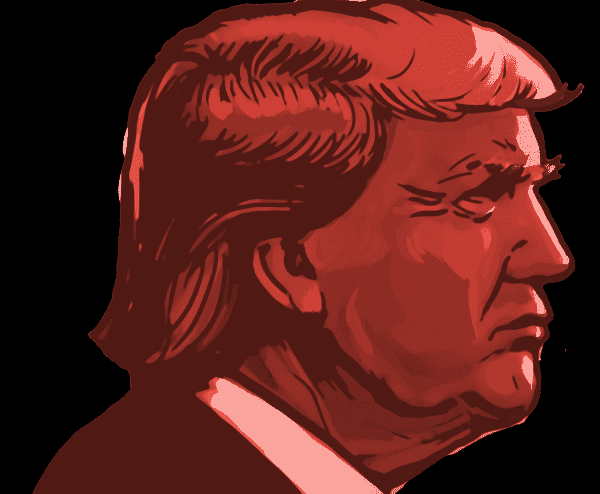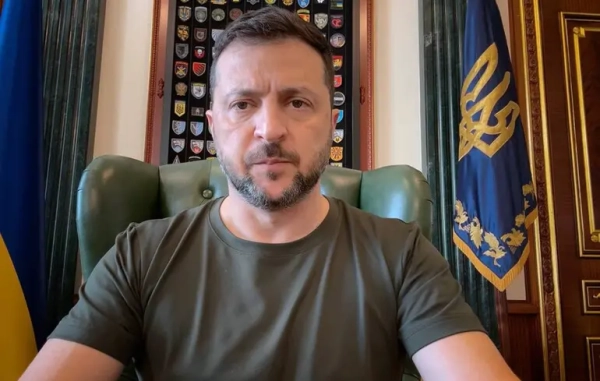
When assessing news made by President Donald Trump, the first question is: Does it matter?
Trump’s statements are more extreme than those made by his predecessors, but they are less predictive of policy than those of past presidents. This is how Washington has come to calm itself over these past 24 months. Yes, what the president of the United States just said might be alarming, but the president says lots of alarming things, and he rarely follows through.
“President Trump’s management style is such that he likes to say what’s on his mind,” Sen. John Kennedy (R-LA) told Vox. “He grows anxious when he has an unexpressed thought. It’s not a criticism; it’s just the way he is. He likes to say, ‘Here’s what I’m thinking.’ But you have to judge him by what he does.”
Between what Trump says and what he does is his staff. The executive bureaucracy is a sprawling machine that takes time to understand and effort to work. Trump has not committed himself to the task of mastery, or even of comprehension. This has been a relief to his allies, who take comfort in their many opportunities to let his impulses dissipate before they become calamities. Trump is also famously responsive to the last person he spoke to, a reflection of his loose grasp of the issues he faces. He knows what he feels better than he knows what he wants.
For these reasons, though, the news that truly matters in Trumpland is staffing, and there, the news is grim. The replacement of H.R. McMaster with former United Nations Ambassador John Bolton takes a reckless, confrontational president and ensconces him in an informational architecture that will now be erected by a reckless, confrontational national security adviser.
“This is by far the most important national security position in our government,” writes Kelly Magsamen, vice president for national security and international policy at the liberal Center for American Progress. “Why? Because this person is the one in charge of shaping and framing national security decisions for the President.”
Nor is it just McMaster leaving the administration and being replaced by a more Trumpist figure. Recent weeks have seen the exits of Secretary of State Rex Tillerson and National Economic Council Director Gary Cohn. Both men were replaced by more extreme candidates.
Trump also fired his lawyer John Dowd on Thursday, a move that the New Yorker’s legal analyst Jeffrey Toobin believes “substantially increases the chances that the President will move to fire [special counsel Robert] Mueller — perhaps very soon.”
Hope Hicks is likely to be replaced as communications director by Kellyanne Conway, whose famous coining of the term “alternative facts” speaks to how little emphasis she places on ensuring the information that gets to the president or out from the White House is rigorously checked and accurately sourced.
Chief of Staff John Kelly’s job is imperiled too. Trump is tired of Kelly’s gatekeeping and attempts to keep order, so he’s musing about firing Kelly and managing the White House himself.
All this is likely to lead to a cycle of immoderation ripping through the White House staff. As the ranks of the moderates thin, the jobs of the remaining moderates become more grueling and hopeless. Already, Bolton is spoiling for a fight with Defense Secretary Jim Mattis, who is widely seen as a key moderating force on Trump. “Sources who know Bolton expect he will stare down Mattis, tell him when he’s wrong, and will be a Henry Kissinger-type presence in the room,” reports Mike Allen. “Now that Tillerson is gone, he could fundamentally tip the balance of power on Trump’s national security team, senior officials expect.”
Working in the Trump administration is difficult in the best of circumstances, and Mattis has been doing it since day one. But the ranks of his allies are waning, and Trump is evidently chafing under the restraints of his staff. How long will Mattis want to continue in his role? How long will he be allowed to continue in his role?
But as Trump surrounds himself with staff who amplify his tendency toward confrontation and escalation, the likelihood that Trump’s instincts will become his policies grows. And that means it’s entirely possible that 12 months from now, America will be embroiled in a trade war with China and Europe, in military conflict with North Korea, and managing the aftermath of Mueller’s termination.
If year one of the Trump era was marked by the relief that so few of the president’s opinions became official policy, year two may be defined by the catastrophes that follow a reckless leader unleashing his impulses upon the world.
Further reading:
• Vox’s John Bolton explainer. Here’s the key graf: “Bolton has said the United States should declare war on both North Korea and Iran. He was credibly accused of manipulating US intelligence on weapons of mass destruction prior to the Iraq War and of abusive treatment of his subordinates. He once ‘joked’ about knocking 10 stories off the UN building in New York. That means his new appointment to be the most important national security official in the White House has significant — and frightening — implications for Trump’s approach to the world.”
• The New York Times adds: “Mr. Bolton will almost surely encourage Mr. Trump’s instincts against diplomatic agreements both consider weak and unwise. He shares the president’s derisive opinion of the Iran nuclear deal and will presumably prod him to scrap it when a May deadline arrives. He likewise takes a dim view of international agreements like the Paris climate change accord, from which Mr. Trump announced last year that he would withdraw the United States. He has called the ‘two-state solution’ for Israel and the Palestinians dead.”
• At the American Conservative, Gareth Porter dives into Bolton’s machinations toward Iran: “Bolton’s high-profile advocacy of war with Iran is well known. What is not at all well known is that, when he was under secretary of state for arms control and international security, he executed a complex and devious strategy aimed at creating the justification for a U.S. attack on Iran.”
• Don’t underestimate Bolton’s bureaucratic skills, says a former colleague. “Unlike his predecessors, Michael Flynn and H.R. McMaster, Bolton is a very experienced and adept creature of Washington institutions. Similar to former Vice President Dick Cheney, he knows the levers and knobs of the vast national security and foreign policy machinery: how they work, who works them, and how to exert control over them. He’ll work to put loyalists in key vantage points and marginalize those he distrusts (both of which I watched him do as undersecretary of state for arms control and international security). In particular, he has the already-weakened State Department, now lacking a secretary, especially mapped out for further hostile takeover.”
• The (not-that-)wayback machine: Remember when Donald Trump thought George W. Bush’s hawkish advisers had discredited themselves after the disaster of the Iraq War? Trump’s Twitter account does.
• This is concerning context, particularly given what we know of Trump’s personality: “As the economist Daniel Kahneman and the political scientist Jonathan Renshon have written, ‘a bias in favor of hawkish beliefs and preferences is built into the fabric of the human mind.’ The arguments of hawkish advisers often play into policymakers’ psychological biases and shortcuts — such as over-optimism about potential conflicts, or the aversion to cutting losses. As a result, in debates about war, decision-makers are more likely to listen to hawks than doves.”
• Max Boot: “Most presidents initially stock their administrations with cronies and ideological purists. Then, after suffering inevitable setbacks, they usher them out in favor of less ideological and more competent professionals. President Trump is doing it in reverse. He is jettisoning anyone who could serve as a break on his extremist tendencies, and replacing them with fire-breathing TV personalities.”
Sourse: vox.com






